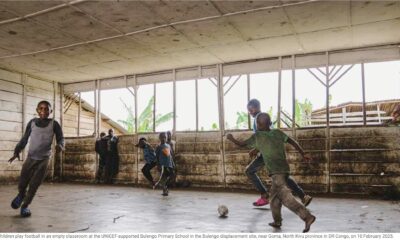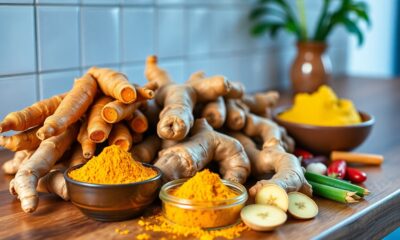Health & Society
Boost Your Immune System, Tips for a Healthy and Active Summer
Immune System – The summer is a time when many people spend more time outdoors, enjoying the sunshine and getting active. While it’s a great time to have fun, it’s also important to take the opportunity to improve one’s own immune system before winter arrives. The immune system is the body’s natural defense mechanism against disease and infection, and keeping it strong is essential for good health. With the following tips, you may improve and maintain your immune system, ensuring a healthy and enjoyable summer season, and what is best in advance for the winter.
Get Enough Sleep
Getting enough sleep is crucial for overall health, including immune function. During sleep, the body produces cytokines, which are proteins that help fight infection and inflammation. Lack of sleep can decrease the production of cytokines, making it harder for the body to fight off illness. Aim for at least 7-9 hours of sleep each night to keep your immune system functioning at its best, and if possible, keep decent hours and regular schedule, otherwise the body forgets one has to do its job and when is time to burn energy!
Eat a Healthy Diet
Eating a well-balanced diet is essential for a healthy immune system. Foods that are rich in vitamins A, C, and E, as well as zinc and selenium, can help boost your immune system. Fresh fruits and vegetables, whole grains, lean protein, and healthy fats are all important components of a healthy diet. Citrus fruits, bell peppers, nuts, and seeds are high in these essential nutrients and can be easily incorporated into meals and snacks. Try making a colorful salad with a variety of fruits and vegetables, or adding nuts and seeds to your morning oatmeal for a nutrient boost.
Stay Hydrated
Staying hydrated (which includes enough salt and potassium) is important for overall health, including immune function. Drinking plenty of water can help flush toxins out of the body and keep the immune system functioning properly. Aim for at least eight glasses of water per day, and avoid sugary drinks which can suppress immune function. If you find plain water boring, you can add slices of cucumber or lemon to your water for extra flavor. You can also enjoy herbal tea or coconut water for a refreshing and hydrating beverage.
Exercise Regularly
Regular exercise can help boost the immune system by increasing circulation, reducing inflammation, and promoting the production of white blood cells. Aim for at least 30 minutes of moderate exercise most days of the week, such as brisk walking, cycling, or swimming. Exercise can also help reduce stress, which is important for immune function. Take advantage of the warm weather and go for a hike, bike ride, or swim in a nearby lake or river.
Manage Stress
Chronic “stress” can suppress the immune system, making it harder for the body to fight off illness and infection. Finding ways to manage stress, such as relaxing, having your to-do list, studying anything that makes you better, and similar routines, may help keep the immune system functioning properly. You can also try journaling, taking a relaxing bath, or spending time in nature to help reduce stress levels. The more you know about yourself and about life, the more control you have over your life and the less stressed you can get.
Get Outside
Spending time in the great outdoors is a great way to boost your immune system. Sunlight is a natural source of vitamin D, which is essential for immune function. Aim for at least 10-15 minutes of sun exposure per day, but be sure to wear sunscreen to protect your skin from damage. Spending time in nature can also help reduce stress levels and promote mental well-being. Take a stroll in a nearby park, go for a picnic, or spend a day at the beach.
Practice Good Hygiene
Practicing good hygiene is important for preventing the spread of germs and keeping your immune system functioning properly. Wash your hands regularly with soap and water, and avoid touching your face. Cover your mouth and nose when coughing or sneezing, and stay home if you’re feeling unwell. Carry hand sanitizer with you when you’re out and about, and make sure to clean frequently-touched surfaces, such as doorknobs and light switches, regularly.
Consider Supplements
If you’re having trouble getting enough nutrients through your diet, you may want to consider taking supplements. Vitamin C, vitamin D, and zinc are all important for immune function and can be taken in supplement form. However, it’s important to talk to your healthcare provider before starting any new supplements. They can help you determine the right dosage and ensure that the supplements won’t interact with any medications you’re currently taking.
By following these tips, you can drastically improve your immune system this summer. Keep in mind that a healthy immune system requires a holistic approach, including a healthy diet, regular exercise, and stress management. By taking care of your immune system, you can enjoy all the fun activities that summer has to offer without worrying about getting sick. So get outside, stay hydrated, and take care of yourself this summer!
Health & Society
EU Court of Justice: Gender identity cannot depend on proof of surgical operation

Correction of data on gender identity cannot depend on proof of surgical operation. This is stated in the judgment of the EU Court of Justice in case C-247/23.
In 2014, V.P., an Iranian national, obtained refugee status in Hungary, citing his trans identity and presenting medical certificates drawn up by specialists in psychiatry and gynaecology. According to those certificates, although the person in question was born a woman, his gender identity was that of a man.
After his refugee status was recognised, the person in question was entered as a woman in the asylum register. In 2022, on the basis of the same medical certificates, V.P. requested, in particular, that authority to correct the indication of his gender in that register and the asylum granted. However, the person’s request was rejected on the grounds that V.P. did not prove that he had undergone gender reassignment surgery.
The person appealed against the refusal before the Budapest City Court. It stated that Hungarian law does not provide for a procedure for the legal recognition of trans identity.
The Court of Justice of the EU stated that, under Article 16 of the General Data Protection Regulation (GDPR), and in particular under the principle of accuracy laid down therein, the data subject has the right to obtain from the controller the rectification without undue delay of inaccurate personal data relating to him. That regulation thus gives concrete expression to the fundamental right enshrined in the Charter of Fundamental Rights of the European Union (hereinafter referred to as the “Charter”), according to which everyone has the right of access to data collected concerning him and the right to have them rectified.
In that regard, the Court of Justice of the EU noted that the accuracy and completeness of those data must be assessed in the light of the purpose for which they were collected. The CJEU considers that the Hungarian court must verify the accuracy of the data at issue in the light of the purpose for which they were collected. If the collection of those data is intended to identify the data subject, those data appear to relate to the gender identity experienced by that person and not to the gender identity assigned to him or her at birth.
In that context, the CJEU states that a Member State cannot rely on the absence of a procedure for the legal recognition of transidentity in its national law in order to prevent the exercise of the right to rectification. Indeed, although EU law does not affect the competence of the Member States in the field of civil status and the legal recognition of their gender identity, those States must comply with EU law, including the GDPR, read in the light of the Charter.
The Court of Justice of the EU concluded that the GDPR must be interpreted as requiring a national authority responsible for maintaining a public register to rectify personal data relating to the gender identity of a natural person where those data are inaccurate within the meaning of that regulation. Secondly, the Court found that, in order to exercise the right to rectification, that person may be required to provide relevant and sufficient evidence which may reasonably be required to establish the inaccuracy of those data.
However, a Member State may in no circumstances make the exercise of the right to rectification conditional on the production of evidence of gender reassignment surgery. Such a requirement affects, in particular, the essence of the right to the integrity of the person and the right to respect for private life, as set out in Articles 3 and 7 of the Charter respectively.
Furthermore, such a requirement is in any event neither necessary nor proportionate in order to ensure the reliability and consistency of a public register such as the register of asylum granted, since a medical certificate, including a preliminary psychological diagnosis, may constitute relevant and sufficient evidence in that regard.
Health & Society
DR Congo: Armed violence displaces thousands as cholera outbreak worsens
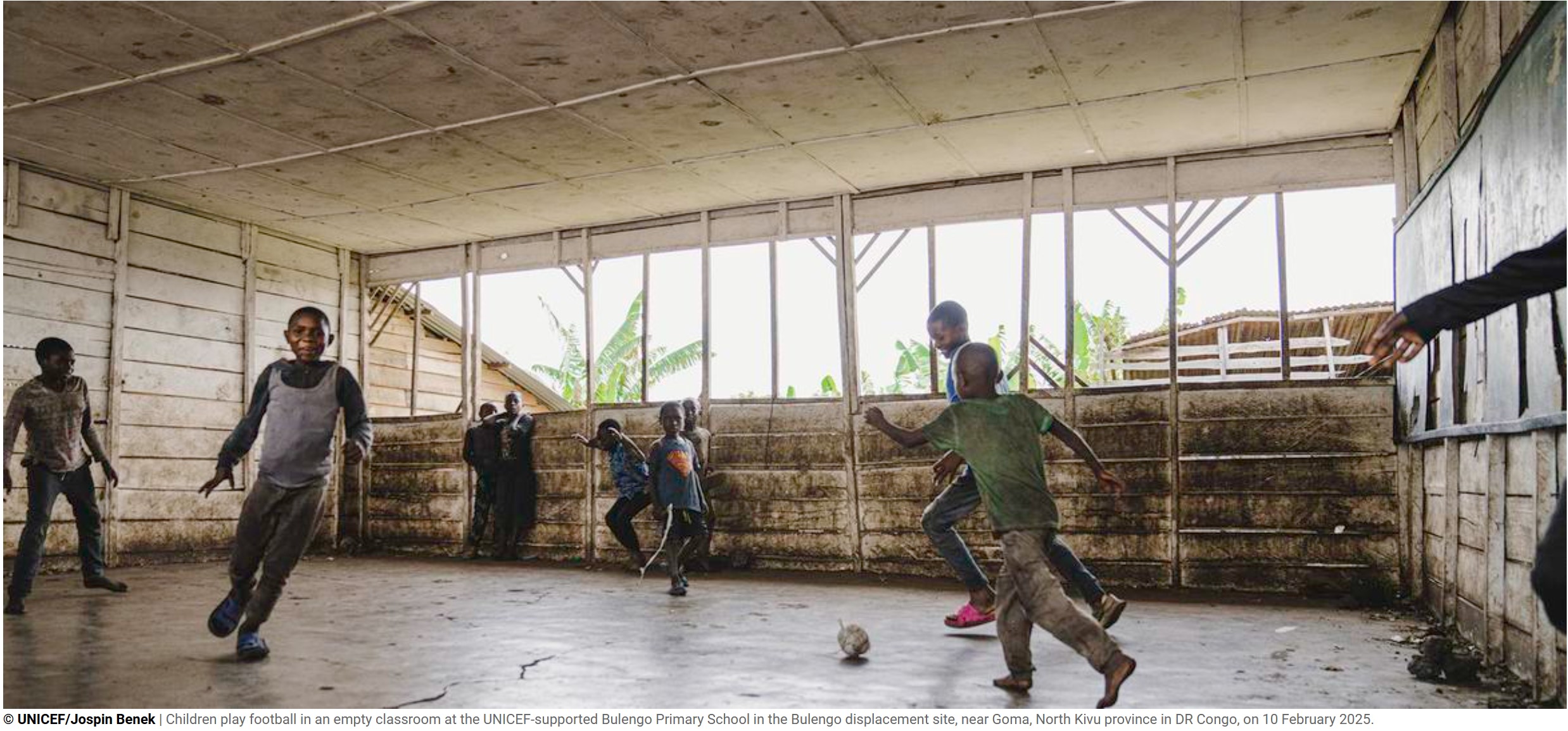
Ongoing violence in North and South Kivu in the Democratic Republic of the Congo (DRC) continues to kill, injure and displace civilians, the UN Office for the Coordination of Humanitarian Affairs (OCHA) has warned.
Intense clashes between local armed groups and M23 rebels were reported on Thursday in the town of Masisi Centre in North Kivu.
Preliminary reports from partners on the ground indicate at least two civilian fatalities and multiple injuries, with several wounded evacuated to Masisi General Hospital.
Meanwhile, many civilians remain confined to their homes due to active crossfire, intensifying fear and limited access to basic needs and services.
“The volatility of frontlines and ongoing combat have rendered comprehensive assessments impossible,” OCHA said.
Despite international support, armed groups have made significant recent gains, particularly the M23 movement, which claims to defend the interests of Congolese Tutsi – many of whom were exiled to Rwanda – and is reportedly backed by Rwandan forces. The extremist Allied Democratic Forces (ADF) also remain active in the region.
Delivering lifesaving aid
In eastern Masisi, where the security situation allows, UN partners are delivering critical aid to displaced and returning populations.
OCHA noted that since yesterday, partners have been distributing household and hygiene kits to more than 500 displaced households in Sake’s collective centre.
Furthermore, 19 of 24 water points in Sake have been rehabilitated, restoring access to safe water for over 4,000 households.
Fresh clashes in South Kivu
In South Kivu, fighting flared again on Tuesday in Fizi Territory, as local armed groups clashed with M23 fighters.
The violence struck the villages of Mulima and Lusuku – both already sheltering thousands of displaced families – prompting another wave of forced displacement.
Cholera outbreak
Meanwhile, in the southern province of Tanganyika, a rapidly escalating cholera outbreak is placing thousands at risk.
As of Wednesday, nine out of 11 health zones in the province are affected, with more than 1,450 confirmed cases and 27 deaths reported since January – a six-fold increase compared to the same period last year.
UN health partners point to severely limited access to safe water – with less than 20 per cent coverage in affected areas – and insufficient healthcare capacity to manage cases effectively.
Health & Society
Danish Youth Take Charge: A Drug-Free Future, One Shop at a Time
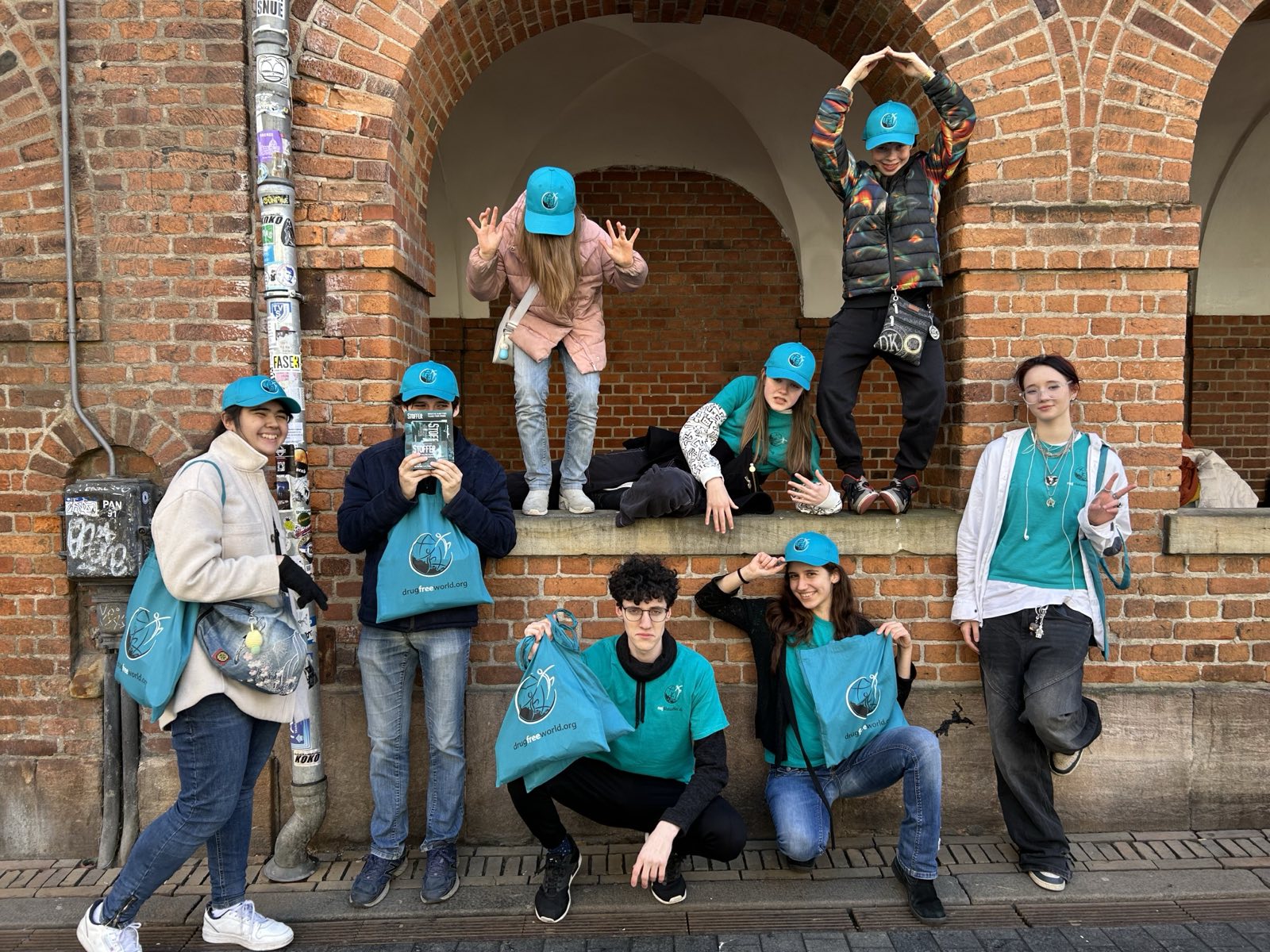
KINGNEWSWIRE – Press release // In the heart of Copenhagen, a group of 15 young activists—aged 10 to 20—are rewriting the narrative on youth empowerment and community health. Inspired by the principles of the Convention on the Rights of the Child and their faith in the Church of Scientology, these teens are spearheading a grassroots campaign to create a drug-free environment. Armed with educational booklets from The Truth About Drugs initiative, they’re turning local businesses into hubs of prevention, proving that age is no barrier to driving societal change.
From Booklets to Action: A Youth-Led Movement
Having started over a month, the group visits shops across Copenhagen, gaining the support of owners and shop assistants to display drug prevention materials at checkout counters. Their approach is simple but impactful: make critical information accessible to everyday customers, sparking conversations about the dangers of substance abuse. “They’re not just kids handing out flyers,” says Giulia, who guides them in this endeavor. “They are showing adults that they care about our future—and that they are taking responsibility for it.”
Their efforts align with global frameworks like the UN Convention on the Rights of the Child, which emphasizes youth participation in decisions affecting their lives. By engaging directly with businesses, the group embodies the spirit of some of UNICEF’s programs, which empowers young people to design solutions for community challenges. “These teens are bridging gaps between generations, ensuring their message resonates where it matters most” said Giulia, in charge of public affairs at the Church of Scientology in Denmark.
Tackling a Local Crisis with Global Lessons

Denmark has long grappled with youth drug use, particularly in areas like Copenhagen’s Freetown Christiania, where hash consumption reportedly remains prevalent. The group’s campaign addresses this head-on, mirroring strategies from what is done in other countries, and try to instil this to every other European country, combining education with community outreach to combat addiction before it arrives.
Their work also reflects a vision of supporting recovery and prevention, proving that empowerment starts long before crisis intervention. The program, one of the world’s largest non-state drug prevention initiatives, is fully funded by members of the Church of Scientology, inspired by L. Ron Hubbard’s research on drug prevention and rehabilitation. However, the teens emphasize the universal message of their materials: facts about drug risks, peer pressure, and making healthy choices “Our religion teaches us to serve others, and do it with factual information” says one of the participants, “this is about saving lives, not religious beliefs.”
A Model for Youth Agency Worldwide
The group’s initiative resonates with many international programs, by equipping young people to drive social change. By partnering with local businesses, this recently started Truth About Drugs youth group, is fostering a culture of collective responsibility. Their actions also echo WHO’s call for youth engagement in health advocacy, positioning them as allies in Denmark’s public health goals.
As these teens inspire shop owners and customers alike, they’re proving that meaningful youth participation isn’t a fairy tale. It’s a blueprint for building resilient communities—one booklet and one conversation at a time. “They are not waiting for permission to change the world,” says Ivan Arjona, Scientology’s representative to the European Union and the UN “They are already doing it.”
-
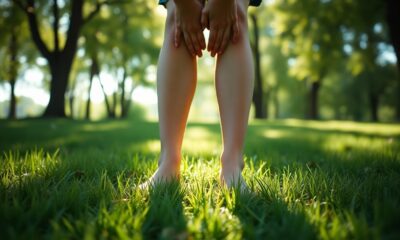
 Health & Society4 days ago
Health & Society4 days agoThe Art of Earthing – Grounding Yourself for Better Physical Health
-

 Health & Society5 days ago
Health & Society5 days agoNatural Sleep Solutions – Creating a Restorative Nighttime Routine
-

 Health & Society6 days ago
Health & Society6 days agoCold Showers and Beyond – Embracing Temperature Therapy for Vitality
-

 Sports5 days ago
Sports5 days agoInter: Acerbi’s renewal is already there and the clause is no longer a concern
-
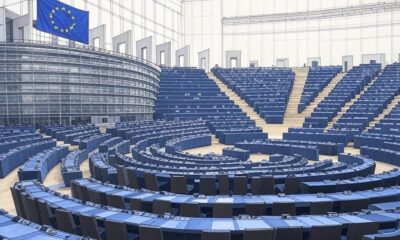
 Politics2 days ago
Politics2 days agoEU Parliament Tackles Steel Industry, Fundamental Rights, and Budget Priorities in Plenary Session
-

 Sports5 days ago
Sports5 days agoNapoli-Milan, Bruscolotti warns: “Leao gave us so many sorrows”
-

 Sports2 days ago
Sports2 days agoNBA, Steph Curry and Nikola Jokic show: Memphis knockout, Minnesota no
-

 EU & the World2 days ago
EU & the World2 days agoIs Cory Booker Still Speaking? How Long His Filibuster Lasted





